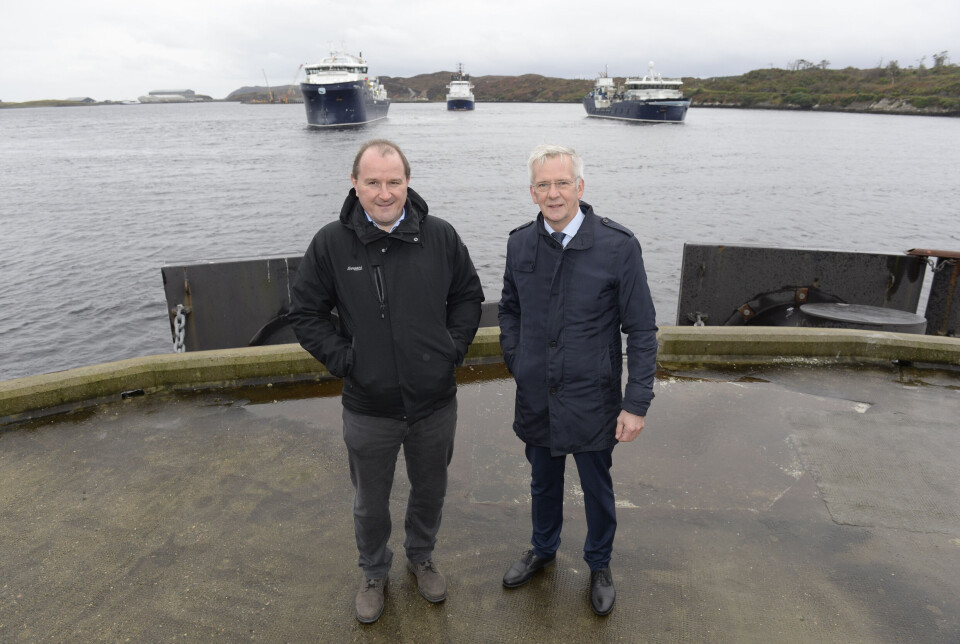
Bakkafrost Scotland harvest volumes may be cut by 20%
Salmon farmer feels the heat after strong first five months of 2023
Salmon farmer Bakkafrost Scotland’s forecast 2023 harvest volume of 30,000 gutted weight tonnes could be reduced by as much as 5,000-6,000 tonnes (16.7-20%) due to biological problems with fish in their second summer in marine sites, the company’s Faroese owner said today.
In its report for the second quarter of 2023, Bakkafrost group said biological development in Scotland was improved during the first five months of 2023 with increased harvest weights and low mortality. But late in Q2 and continuing into the current quarter, biological development became more challenging.
“Environmental challenges affected fish being in their second summer in the sea, leading to higher mortality. This will affect the cost and mortality rates negatively in H2 and can compromise planned harvest volumes for 2023 in Scotland, with 5,000-6,000 tonnes, dependent on the continued biological development in H2 2023,” said the Faroese company.
Bakkafrost group chief executive Regin Jacobsen said the company was evaluating a range of risk-mitigating measures.
£4.8m mortality costs
Incident-based mortality costs Bakkafrost Scotland DKK 42 million (£4.8m) in Q2 and DKK 45m for the first half of the year, down from DKK 81m in H1 2023.
Warming seas mean that the second half of the year has increasingly become a difficult period for Bakkafrost Scotland and other Scottish salmon farmers, primarily affecting larger fish, and Bakkafrost aims to get round the problem by producing large post-smolts that will spend only one summer in the sea.
It has released the first batch of 200-300 gram smolts grown at its new hatchery at Applecross, and a larger batch will be released in Q4 which will be the first one-summer farmed salmon in Scotland. The company’s long-term plan is to produce 15 million post-smolts a year with an average weight of 500g, split between Applecross and a proposed new facility at Fairlie in North Ayrshire.
Lower operating EBIT
Overall, Bakkafrost Group delivered a total operating EBIT of DKK 353 million (Q2 2022: DKK 587m) in Q2 2023 and made a profit of DKK -123m (DKK 845m).
The combined Faroes farming and value-added products (VAP) segments made an operational EBIT of DKK 216m (DKK 509m). The Faroes farming segment made an operational EBIT of DKK 242m (DKK 617m).
The Scotland farming segment made an operational EBIT of DKK 71m (DKK 41m).
Bakkafrost Group’s VAP segment made an operational EBIT of DKK -26m (DKK -108m). The EBITDA for Bakkafrost’s feed company, Havsbrún, (Fishmeal, -Oil and Feed segment) was DKK 128m (DKK 119m).
“Overall, we are satisfied with the results in this quarter. Especially with our Fishmeal, -Oil and Feed segment which delivered a record quarter. H1-2023 has been record-breaking with all time high sourcing leading to all time high fishmeal and -oil production. Fish meal and - oil prices are also all-time high.”






















































